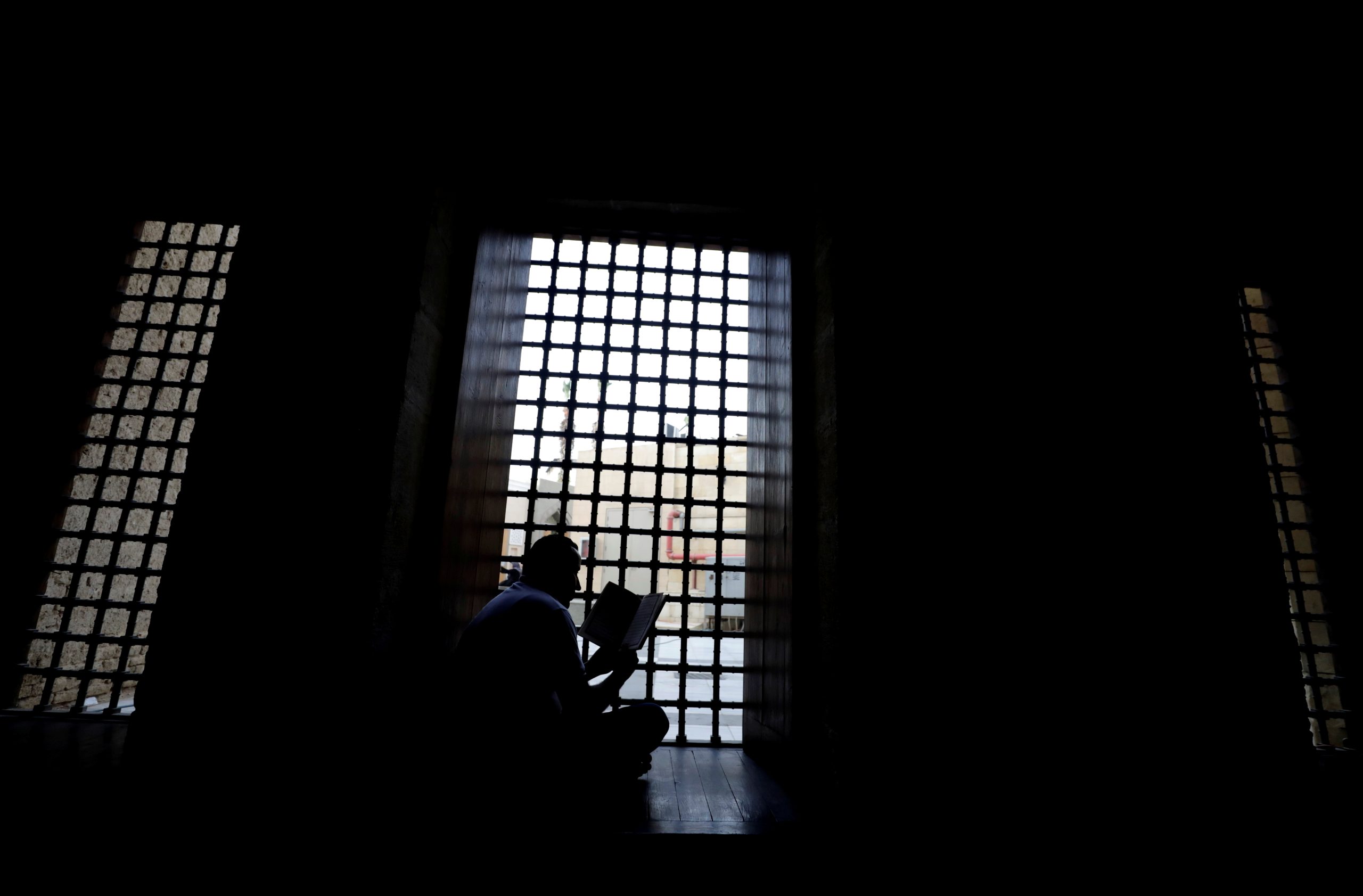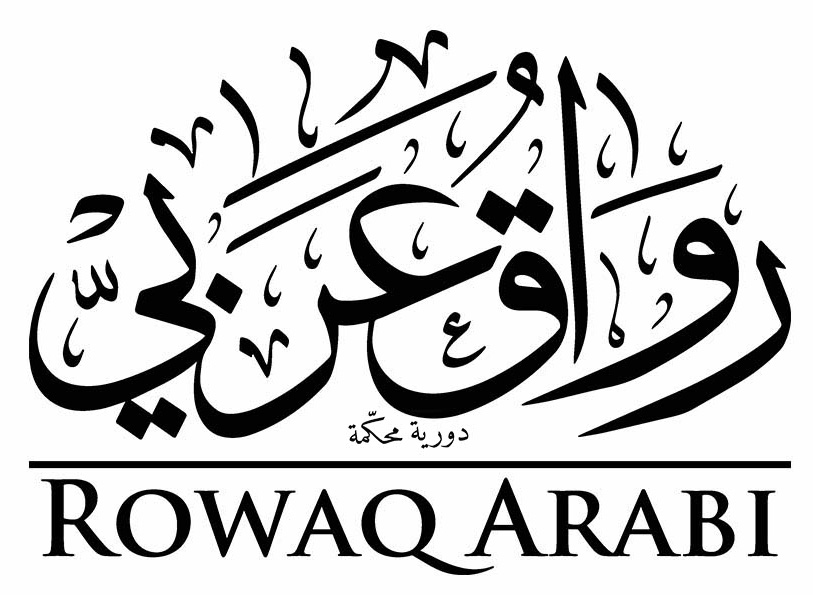Views: Who Speaks for the Egyptian Soul? The Tension between Rulers and al-Azhar

Citation: Brown, Nathan J. (2023) ‘Views: Who Speaks for the Egyptian Soul? The Tension between Rulers and al-Azhar’, Rowaq Arabi 28 (2), pp. 7-16, https://doi.org/10.53833/BCQM1937
Egypt today seems to be a society where politics has died—or, in the eyes of regime critics, politics has been killed. Independent political voices are silenced, not merely in the society but even within most of the state apparatus. The presidency sets the tone and content of policy and acceptable political positions. Of course, there are rumours of rivalries among various security bodies, but the opacity of their operations allows only speculative analysis. Only one public independent voice remains: that of al-Azhar, a vast complex of institutions that collectively comprise the seat of Islamic education and research in the country.
This silence of politics is nearly total. Serious political contestation is impossible through regular institutional channels; political organisation is monitored and often suppressed; and public political debates are limited to people and opinions that appear to be highly filtered by security bodies. Private discussions remain fairly free, but when they move from face-to-face conversation to social media, monitoring and policing are interposed.
But ‘death’ may convey the situation in overly absolute terms: there is one area for lively public debate and even contestation. A host of actors have discussed a systematic rewriting of Egypt’s family laws. Drafts have been published (though sometimes quickly disappearing from view). And discordant voices are heard over a few other aspects of religion. The debate is not only among social actors and activists but also among state officials. Most significantly, al-Azhar and its grand imam, Ahmad al-Tayyib, retain not only autonomy but some prominence. They are hardly opposition figures and appear comfortable with the general political order—but when they disagree on a public issue they say so even if it means challenging the president.
The grand imam is one of the most senior figures in the Egyptian state, having attained his position three presidents and two regime changes ago. Al-Tayyib does not lead al-Azhar alone; he is joined by a ‘Body of Senior Scholars’ (Hay’at Kibar al-`Ulama’) that he appointed and is now a self-perpetuating body.
Thus, there are signs of independence and rivalry over religious issues. While few and far between, some instances have attracted great attention, most famously two restrained but still stark and startling public confrontations between President `Abd al-Fattah al-Sisi and Grand Imam Ahmad al-Tayyib. And much more subtly, there have been a series of debates on religious issues, often seemingly conducted by surrogates or allies of the president or the grand imam.
In this paper I will analyse the origin, nature, and possible course of this struggle among state institutions about who represents the moral and religious nature of the Egyptian political community—or, more succinctly, who speaks for the Egyptian soul. I will first examine how al-Azhar attained autonomy and then how it has retained it. I will proceed to examine the apparent division between al-Azhar’s leadership and the presidency but then present what seems to be the real, if underlying, rivalry. I will proceed by examining the prospects for continued autonomy for al-Azhar as well as the possible implications that it will provide some open political space. Overall, the portrait I will present will be of an institution with an independent voice but one that must be used carefully; the autonomy is real but precarious and unlikely to widen or lead to a broader opening.
The Origins of al-Azhar’s Autonomy
Al-Azhar is a state institution—fully and unambiguously. It has a commitment to religion, to be sure, and evinces great signs of institutional pride in a distinctive Azhari approach to Islam, which it sees as centrist (wasati), sensible, and combining elements of protection of the heritage (turath) of Islamic learning with a commitment to meet the needs of modern society. Its autonomy generally follows the trajectory of some other state bodies over the past century.
When discussing politics today, many Egyptians resort to an imported phrase: the ‘deep state.’ That term arose in Turkey to describe a web of senior state officials in the military, judiciary, and upper levels of the bureaucracy that kept civilian politics within specific boundaries—the ‘deep state’ enforced its conception of Kemalism in that country.[1] That state was deep but not hidden; it was not monopolised by security bodies (though they were a key component). When imported to Egypt, however, the term tends to refer to bodies that are hidden and dominated by security actors. If there has been a deep state in Egypt in the original Turkish sense, the senior leadership of al-Azhar might be viewed as part of it: it sought to present itself as standing above politics in order to guarantee authentic values and the interests of the society. In the newer, more sinister and exclusively securitised conception of the ‘deep state,’ al-Azhar is definitely outside—operating under the watchful eyes of a presidency and security apparatus that evince irritation at its unwillingness to take orders. Public perceptions in this regard even generated material for a commercial film—Walad min al-Janna (in English, The Cairo Conspiracy), the first Cannes Festival winner whose plot focused on al-Azhar’s Body of Senior Scholars. The tension between deep state and al-Azhar is a staple of private political discussions in Egypt.
In part, this is a remarkable holdover from a previous era. In the four decades before the 2011 revolution, many Egyptian state institutions were gradually able to carve out autonomy from the presidency. Several factors contributed to this long-term trend: the dissolution of the Arab Socialist Union in the 1970s, the decline of ideology beginning around the same time, the growing complexity of the Egyptian state apparatus, a greater (if uneven) professionalisation of some state bodies, subtle fiscal decentralisation (allowing some agencies quasi-ownership of property, for instance), the development of professional syndicates, a norm of seniority (making career advancement depend on length of service more than political loyalties), and growing internal control over hiring and appointments. Developments were so gradual and incomplete that they were not often noticed, but the result was that some judicial actors, state-owned enterprises, and some ministries and bureaucracies (such as tax collectors) were able to pursue their own agendas and sometimes even articulate a broad if vague political vision. None emerged as a bastion of opposition by any means, and all seemed ultimately supportive not merely of the state but of the regime; all still ultimately answered to the presidency, but sometimes in desultory ways. In 2011, the presidency as an institution collapsed along with its ability to lead the increasingly disparate state apparatus—at least for a short period.
Al-Azhar participated in these trends. Its political independence had been sharply curtailed in the 1960s. But from the 1970s on, it regained a small portion of its autonomy. Official ideology decayed but religious themes became more prominent in public life as the regime jettisoned much of its commitment to socialism and Arab nationalism. The emergence of Islamist groups of various stripes also led the regime to rely more heavily on al-Azhar as a voice of ‘centrism’ to combat ‘extremism’ (tatarruf).
And in 2011, al-Azhar’s leadership positioned the institution very carefully in the political tumult—suggesting loyalty to the regime but opposition to violence. By striking a somewhat independent stance—and by forming a possible bulwark against a rising tide of Islamist electoral actors, al-Azhar won a very significant prize: the law governing the institution was amended by the Supreme Council of the Armed Forces in 2012 by decree. The law, prepared by the al-Azhar leadership, was rushed through before a new parliament (dominated by Islamists) was seated, augmenting suspicions that the point was to keep al-Azhar out of Islamist hands.
And it did, taking it out everybody else’s hands as well. The legal measure recreated the Body of Senior Scholars (originally created in 1911 but abolished in 1961 when the regime brought the institution under its more direct control).
Retaining Autonomy: Al-Azhar Stands Alone
The 2012 SCAF decree-law on al-Azhar was not an isolated occurrence: other state bodies won greater control over their own affairs. But the autonomy al-Azhar won has survived unlike that of its sister state institutions, in large part because al-Azhar’s constituencies have made it a more imposing target.
In the 2011-2014 period, a host of state institutions worked to secure decree-laws and constitutional clauses to achieve what al-Azhar had. And judicial actors (along with security bodies, of course) won some real victories. But with the beginning of the al-Sisi presidency, those gains were progressively hollowed out in a series of legislative changes and constitutional amendments. The authority of the judiciary over its own senior appointments was lost. Most publicly, this occurred when the Supreme Administrative Court showed a willingness to cross presidential will and promptly lost the ability to name its own leadership. But there were many fewer public battles. The Supreme Constitutional Court, which had emerged as an important and somewhat independent body in the 1980s and 1990s and then again after 2011, showed a willingness to toe the line and found two of its retiring chief justices (both veterans of the Court’s bold years in the 1980s and 1990s) rewarded with the speakership of the parliament’s upper and lower houses. But then it lost its own autonomy to name its chief justice in a constitutional amendment. In 2022 President al-Sisi turned to a relatively junior justice who had been added to the Court under Chief Justice Faruq Sultan, a figure who had himself been brought in toward the end of the Mubarak presidency out of a concern that the Court be kept on a tight leash during a presidential election and even possible transition. And in a coup de grace, the head of the military courts was parachuted onto the Court in a stark reminder of who controls the state.
But no such measure has been taken against al-Azhar. The Grand Imam retains his position; the Body of Senior Scholars functions. (With 23 members in place and 17 empty slots remaining to be filled, it finds itself straining to meet a quorum—and since it is restricted to very senior figures, it faces new vacancies with distressing frequency as current ones pass on to the next world. Its members still apparently prefer to keep the number down in order to resist pressure to fill the ranks with pliable figures). The Body now names its own members; it will name any successor to Ahmad al-Tayyib, and it will also name any successor to the current Grand Mufti (Shawqi Allam, the head of Dar al-Ifta’, the body responsible for giving Islamic legal guidance to state bodies on a host of matters, including the ratification of death sentences). Proposals to change the law of al-Azhar and amend the appointment authority for the Grand Mufti have been raised, sometimes by parliamentarians, and then dropped.
Why is al-Azhar so hard for the regime to bring to heel? Unlike almost all other state bodies, al-Azhar has international and domestic constituencies that make it a more imposing target.
Internationally, al-Azhar presents itself as an authoritative guardian of the classical heritage of Islamic learning and also a beacon of approaches that engage fully with modern life rather than lead to religious or political extremism. Its self-image as the leading Islamic religious institution in the world may betray exaggeration, but it is not invented from whole cloth. Al-Azhar attracts students from all over the world (and oversees some schools and institutions of higher learning outside Egypt). The grand imam is a regular host for international visitors, and he is active internationally in other ways. In 2019, for instance, he signed a document on human fraternity with Pope Francis, an event that was recognised by the United Nations General Assembly and endorsed by US President Joe Biden. (That document was signed by the UAE, often described as a patron of al-Azhar.). The overall effect is to heighten both the prestige and the usefulness of the institution within the Egyptian state.
More substantial perhaps is al-Azhar’s domestic constituency. With its own alternative network of primary and secondary schools, its large university, and the monopoly of its graduates over many religious positions in mosques and schools throughout the country places the institution not merely at the centre but as something of a protective space for what might be termed a ‘pious public’ of Egyptians who look to religious instructions, education, and practices to structure their own lives and that of the society. Most Egyptians encounter Islam in public form in a manner shaped and sometimes even directed by al-Azhar.[2] Other state institutions—such as the judiciary or state media–may have beneficiaries, to be sure, but not so many who feel a sense of membership.
It therefore should be no surprise that in the post-2013 crackdown on political activity on Egypt’s university campuses, al-Azhar was left until the end and then handled a bit more carefully. Large parts of the student body had Islamist and even Muslim Brotherhood sympathies; the leadership tended to view the Brotherhood as opportunistic and religiously inexpert (‘they are more a political than a religious organisation’ many al-Azhar leaders would say), the strong pockets of support on campus and even among a minority of leading faculty led to a very different atmosphere in the post-2013 period. With the coup and the Rab`a massacre leading to bitter feelings indeed, even al-Azhar leaders who supported the new regime found their friends and family divided and led to far more restrained actions and rhetoric from most institutional leaders than prevailed in the rest of the country.[3] Azhari Brotherhood supporters have been edged aside or pushed out, but the process was slower and gentler than elsewhere in Egypt.
But those events are now nearly a decade old. What divides al-Azhar from the country’s political leadership—and even the president himself—today?
On the Surface: Arguing over Religious Issues
There have been a series of debates in which al-Azhar has struck a different position than that of the country’s top political leadership. Earlier in the al-Sisi presidency, many of the debates tended to focus on issues connected with security and terrorism. For instance, al-Azhar held back from denouncing the Islamic State and its supporters as apostates—not out of admiration or protection for the group, its leaders explained, but because a declaration of apostacy was such a consequential step that the prevailing scholarly approach has been to place stringent procedural obstacles; it was one thing to denounce the Islamic State’s actions and doctrines as contrary to Islamic teachings but something else to pass judgment on the status of its members as Muslims. For Egypt’s leaders, this stance amounted at best to scholastic hair-splitting and at worst to a kind of intellectual protection. And it was compounded by the way in which the grand imam had equivocated in 2013 (supporting the coup but clearly distancing himself from the new regime’s violence) and avoided condemning the Brotherhood as terrorist (even as he made clear his more subtle distaste for the movement).
The difference in tone has continued. When President al-Sisi speaks about religion, he tends to emphasise security, stability, and fighting terrorism; the grand imam might agree, but he focuses much more on guided study and correct understanding of religion. Atheism is more of a concern for al-Azhar than it is for the president.
But in recent years, discussion has broadened to other areas. Most publicly the president and the grand imam clashed on the issue of divorce. In one sense their argument is technical: is a proposed requirement that husbands must have their divorce pronouncements witnessed by an official in order to be recognised (as the president wished) a needed reform? Or was it a contradiction of a very clear set of textual indications that a simple oral declaration of divorce by a husband was legally valid—as the Grand Imam insisted, backed by the Council of Senior Scholars?
The president himself has not waded into technical questions since that dispute, but public attention has focused on al-Azhar’s positions on family law, domestic violence, the authoritativeness of hadiths, and other questions of social life and religious interpretation.
Underlying Difference: The Nature of Authority
In one sense, then, the perception of a division between al-Azhar and the presidency is puzzling. Aside from a few high-profile disputes—most of which seem to have receded in salience—where does the difference lie?
There is much that would seem to unite them. Both would claim to support ‘centrist’ Islam; both would stress the need for social order; both tend to social conservativism on a wide range of matters from dress to family life. More abstractly, both see themselves as pillars of the state—the president as its leader; al-Azhar as fully accepting the need for a state to provide for order as well at the legitimacy of the Egyptian state. And their common view of the state is often paternalistic—al-Sisi referring to all Egyptians as his children; al-Azhar’s leaders referring to the state (and sometimes its high officials) as the wali al-amr, a term deployed in Islamic jurisprudence to refer both to any legal guardian (for instance, a father acting for his minor children) as well as the ruler of an Islamic polity. This is a view of political authority that stresses responsibility to the community and to God—but has little to say about constitutional procedures or democratic mechanisms of accountability.
So, the differences are not really doctrinal. Instead, they stem from different visions of the role of the presidency and of al-Azhar. Here it is necessary to speculate a little since the tension, while on clear display at times, is publicly expressed in constrained and often very general terms.
The president clearly sees himself as the leader of the Egyptian state and he clearly sees—and highly values—the state as the entity that protects Egyptians and provides for them. Egyptian lives and livelihood need protection—from terrorism, selfishness, international adversaries, pernicious social practices, economic hardship, rebellious youth, and moral decay. It is the president’s duty to identify these challenges and lead the society—and the state apparatus—in its supreme task. And al-Azhar, the part of the Egyptian state needs to support this effort by marshalling religious arguments to support efforts against terrorism, deviance, and divorce and for economically productive activities. But the president seems to feel he has found a religious leadership that is sometimes obscurantist, disconnected from society, distracted by marginal questions, and overly deferential to outmoded ways of thinking.
The grand imam would likely disagree with none of the president’s goals but insist that they have to be pursued through a framework that draws on—and certainly does not violate—Islamic teachings. The president is owed due respect and deference in the policy realm as the political leader of the community, but he is a political leader with a military background and his guidance on religious teachings is less expert than those who are specialists. Al-Azhar does not seek to regulate safety standards in state-owned manufacturing plants; the president should not seek to give instructions to the grand imam on Islamic jurisprudence. Al-Azhar is beholden to the interests of society and is loyal to the state, but its instructions come from God, unmediated by the president.
If this phrasing—which neither side would openly voice—is accurate, it suggests the real source of tension is whether or not al-Azhar will not merely be politically loyal to the state (it is emphatically loyal) but whether it will follow the policy directions of the leader. The president sees himself as giving policy direction to the state apparatus. And he finds an al-Azhar that not only addresses matters of public concern but will not follow precise orders.
While implicit, this tension has been most clearly on display on the matter of ‘the renewal of religious discourse’—a cause publicly endorsed by al-Sisi a year into his presidency. Egyptian state bodies—including the Ministry of Religious Affairs, Dar al-Ifta’, and al-Azhar—enthusiastically embraced the slogan and sponsored research projects, international conferences, and public pronouncements on the subject. But what did that vague slogan mean? For the president, it seemed to mean that religious understandings had to be brought into line with the needs of society today—needs that (implicitly but quite clearly) the leadership of the state was responsible for identifying. For subservient religious actors (like the Ministry of Religious Affairs) it meant an opportunity to prove their worth to the country’s leader. For some intellectuals it meant a protective umbrella for challenging the dominance of what they saw as overly conservative interpretations. And for al-Azhar’s leadership it was an appropriate slogan for supporting what the institution has come to see as its mission: to ensure appropriate religious understandings are developed, prevail intellectually, and structure social and personal life. Rarely had so many disagreed so profoundly by claiming to agree.
The Precarity of al-Azhar’s Autonomy
In each of its confrontations with the President, al-Azhar has held its own or even prevailed in the short term. Oral divorce is still legal. Other attempts to amend Egypt’s family law are floated—and sink from public view. The law governing al-Azhar has remained essentially unchanged.
But that does not mean that the tension will have no long-term consequences. In an earlier confrontation between a state body and the presidency (involving some judicial actors and the presidency under Husni Mubarak in the middle of the first decade of the twenty-first century),[4] I used the phrase ‘tennis players entering the boxing ring’ to give voice to a sense that if the challengers were seen as challenging core regime interests, they may find themselves overpowered by those who are armed with many forceful tools. Will al-Azhar suffer the same fate?
Gradually this may already be happening. For now, my speculation is that the regime will move slowly and gently because it finds al-Azhar bothersome but not threatening. And its bothersome nature is addressed in two clear ways.
First, alternative religious leaders are thrust forward (or step forward). Early in the al-Sisi presidency, it was the minister of religious affairs who seemed quick to parrot regime rhetoric on terrorism and the Brotherhood and to advance (and even anticipate) regime concerns (for instance, with his effort to have a single sermon, written by the Ministry, delivered in all mosques at Friday prayer). The minister’s credibility in the pious public was not impressive and may have suffered. In recent years, the position of the grand mufti and his office (Dar al-Ifta’) seem to be stepping forward a bit more. The current grand mufti, Shawqi Allam, was named by the Body of Senior Scholars shortly after it was re-established; he was not a prominent figure at the time and certainly has less religious prestige than the grand imam. But he is also a cautious figure and may be a bit more pliable.
Second, the regime has a clear grip on public media—more so than at any time since the 1970s. Readers of newspapers routinely see the same stories, sometimes with the same photos, placed on the same pages of whatever newspaper (state owned or ostensibly private) they read; viewers see similar themes arise and similar positions taken by voluble presenters or talk-show hosts.[5] Those loyal to al-Azhar speak of ‘media campaigns’ against the institution as it is criticised for its positions on a host of issues (domestic violence, most recently). They seem to suspect that when they cross regime interests the institution or its positions are subject to a barrage of criticism or disrespect, sometimes on an unrelated issue. Given the tightly controlled media environment in Egypt—in which regime loyalists and even security agencies are widely understood by readers and viewers to set the agenda–they may be right. Al-Azhar does have some tools—it has won a position as policer of public morals that Egyptian courts will sometimes defer to and sanction those who are held to violate religious teachings or slander religious truths. Even when courts do not ultimately support such efforts—or when efforts by members of the pious public to bring a matter to court do not lead to a successful suit—there can be a chilling effect on public debate. Al-Azhar and its supporters may be supportive of autonomy on religious matters, but they are not champions of unfettered expression or liberal freedoms.
Ultimately, such techniques seem to amount to guerrilla skirmishes that chip at al-Azhar’s prestige but do not challenge its centrality or autonomy. But their effect is already becoming clear; al-Azhar’s own proposal for family law reform has been shelved; a committee formed to draw up a new law contained no representatives from al-Azhar; and the grand imam seems to be holding his tongue on most issues, still refusing subservience to the presidency but reluctant to pick a new battle.
Can al-Azhar’s Autonomy Spread?
Does al-Azhar’s autonomy offer opportunities for Egyptians—of whatever inclination—political space of any kind? Yes, but only to a very limited extent. First, it is important to note that al-Azhar’s adamant insistence on its role is most marked in two areas: its own institutional prerogatives and issues closely related to Islamic teachings.
With regard to the former, it does show some ability to provide a slightly protected space to those within its own ranks but it is still a hierarchical institution (perhaps more now than in the past because of the existence of the Body of Senior Scholars) and, while it has a powerful voice on religious matters, its more general statements to the public are either vague or mediated through officially-controlled media channels.
With regard to the latter group of issues, al-Azhar is able to ensure that multiple voices are heard on public policy issues with a religious dimension (religious observance during times of COVID-related public health restrictions; family law) so that genuine political debates are actually presented to the Egyptian public on such issues. But while debate has many participants, not everyone can participate; generally, only those with an official platform (seats in parliament, membership in a state body) can take part.
Second, it is important to recall that while al-Azhar guards its autonomy, it is still very much a state institution and a fairly conservative one. It stands not for liberalism but for a religiously-inspired version of public order.
The closest analogy then to al-Azhar’s role might be that of the Catholic Church in the Franco regime. The parallelism is far from precise, but in both cases one can see a hierarchical structure supportive of the state and loosely allied with the regime but still one with some autonomy, some pluralism within its ranks, an ability to communicate that the leader’s voice is not final on all issues, and even some interest in avoiding overly close identification with the head of state or with particular policies.
Nevertheless, over the long run, al-Azhar is still an exposed institution. The real test may come when the grand imam steps down—and he turned seventy-seven years old in January 2023. The procedures for designating his successor still lie in law with the Body of Senior Scholars that he himself selected. An attempt to change that law—or to bring pressure on some its members to appoint a more pliable figure—will be a sure sign that the regime has decided to rein in al-Azhar as it earlier reined in the courts. That it has not done so yet may be a sign of its confidence that it can continue to manage the relationship or that the costs of being seen to bring the religious establishment would be too high (perhaps because of who it would alienate or perhaps because it would undermine the institution’s credibility among Egyptians or even its international audience). Until today, the regime has acted with uncharacteristic restraint. It may not do so indefinitely.
[1] Gingeras, Ryan (2010) ‘Last Rites for a ‘Pure Bandit’: Clandestine Service, Historiography and the Origins of the Turkish “Deep State,”’ Past and Present 206 (February), pp. 151–174.
[2] Along with Michele Dunne, I have tried to map religion, politics, and state in Egypt in Dunne, Michele and Nathan J. Brown (2021)‘Who Will Speak for Islam in Egypt-and Who Will Listen?’ in Frederic Wehrey (ed.) Islamic Institutions in Arab States: Mapping the Dynamics of Control, Co-Optation, and Contention, Carnegie Endowment for International Peace, 7 June, https://carnegieendowment.org/2021/06/07/who-will-speak-for-islam-in-egypt-and-who-will-listen-pub-84654
[3] I base this on confidential conversations with people associated with al-Azhar over the past decade.
[4] The comment came in a conference organized by the Cairo Institute for Human Rights Studies in Cairo on 2006. The papers for that conference, drafted during that period, were published by American University in Cairo Press (2015) in Nathalie Bernard-Maugiron (ed.), Judges and Political Reform in Egypt, (Cairo).
[5] Daily newspapers provide regular evidence of this. For instance, on 9 March 2023, President al-Sisi met with the top military leadership. Very anodyne descriptions of the meeting appeared in Egyptian dailies on March 10 containing very similar wording and the same photograph.
Read this post in: العربية





